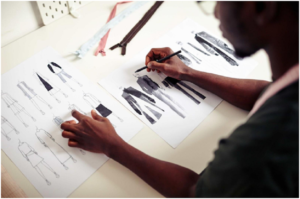Violin Practice Tips for Busy Adults

Have you ever dreamed of playing the Violin but felt like your busy schedule keeps getting in the way? You’re not alone!
Balancing life and learning an instrument can feel challenging, but it’s absolutely possible. Whether you’re looking for how to play Violin or returning to it after a break, we’ve got you covered.
These simple yet effective tips will help you make the most of your practice time, stay inspired, and rediscover the joy of creating music. Let’s get started!
1. Set Realistic Goals
Setting realistic goals gives you a sense of progress and keeps practice sessions focused and productive. Large goals, like “I want to learn this whole song,” can feel overwhelming. Instead, break them down into smaller, manageable pieces.
Start Small
Start by saying, “Today, I’ll work on just the first part of this song,” or, “I’ll spend 10 minutes on scales.” Small achievements build confidence and give you a sense of accomplishment.
Daily Goals
At the beginning of each practice, write down a goal. It could be working on a specific technique, like bowing or finger placement, or mastering a difficult passage. Setting a daily goal helps you know exactly what to focus on and makes each session feel purposeful.
2. Create a Practice Schedule
Consistency is key to steady progress, even if you can only practice for 10–20 minutes a day.
Find Your Time
Look at your daily routine. When do you have 15–20 minutes of free time? Early morning, lunch break, or evening before bed? Pick a time that works best for you and make it your dedicated violin practice slot.
Stick to It
Once you choose a practice time, try to stick to it. Treat it like an important meeting with yourself. Even short, daily practices can lead to improvement and make violin playing a steady part of your life.
3. Make Your Space Comfortable
Your practice environment matters more than you think! A calm, organized space makes it easier to concentrate and enjoy your practice.
Choose a Quiet Spot
Find a peaceful spot for practicing. This might be a room at home, a quiet corner, or even outdoors if the weather is nice. A quiet space helps you focus without distractions.
Keep It Organized
Keep your violin, sheet music, and other essentials like a tuner and rosin within reach. An organized space saves time and creates a welcoming atmosphere, making it easier to get started.
4. Use Short Practice Sessions
It’s easy to feel like you need an hour to practice, but short, focused sessions are just as effective—especially if you’re busy!
Break It Down
Instead of aiming for long sessions, practice in 10–20 minute blocks. This makes practice less daunting and fits into a busy schedule.
Focus on One Thing
In each short session, focus on a specific skill. For example, dedicate one session to scales and the next to a piece you’re learning. This approach keeps you from feeling overwhelmed and helps you improve faster by building one skill at a time.
5. Use Technology to Help You
Technology can be a powerful aid for your practice.
Music Apps
There are many apps and websites that offer lessons and practice tools. Tuner apps like Tuner Lite or Cleartune make it easy to keep your violin in tune. Metronome apps help with timing, and some music apps even offer backing tracks to play along with, making practice more enjoyable.
Record Yourself
Recording your practice with your phone or computer can be incredibly helpful. Listening to yourself afterward lets you hear areas for improvement, and tracking your progress over time is motivating.
6. Practice Smart, Not Hard
Focus on the quality of practice rather than the quantity.
Target Specific Sections
Instead of playing an entire piece repeatedly, focus on the tricky parts that need improvement. Break down difficult passages and repeat them slowly, paying close attention to technique.
Slow Down
When learning something new, practice slowly at first. Slow practice builds muscle memory and accuracy, allowing you to play the piece well at a faster tempo later.
7. Stay Motivated
Maintaining motivation is essential for steady progress. Here are some ways to keep your passion alive:
Play Music You Love
Choose songs that you enjoy and feel excited about. Playing pieces you love makes practice sessions more enjoyable and keeps you looking forward to each one.
Join a Class
Is Violin hard to learn? Joining a class will make the progress faster and easier. It is important to get a good violin coach who can teach you the techniques properly. Your teacher will also help you to create a customized plan for self practice at home. If you can’t find a good teacher in your neighborhood, you can explore online violin courses.
8. Focus on Technique
Good technique is the foundation of great violin playing. Developing technique doesn’t require long practice sessions but rather a mindful approach.
Warm Up First
Always begin with a warm-up to prepare your hands and fingers. Simple scales, open-string exercises, or long tones are great for warming up, helping you ease into playing with better control.
Use a Timer
A timer can help you manage your session. Divide your practice into sections, such as 5 minutes for warm-up, 10 minutes for technique, and 5 minutes for playing a favorite piece. A timer keeps you focused and ensures you cover all areas.
9. Take Breaks
Frequent breaks during practice prevent physical and mental strain.
Rest Your Hands
Playing the violin requires precision, which can be tiring for your fingers and hands. If you feel tension, take a short break to stretch your fingers and release tension in your arms.
Step Away Mentally
Feeling frustrated or overwhelmed? Take a quick break. A few minutes away from practice can help you come back with a fresh perspective and renewed energy.
10. Celebrate Your Progress
Recognize and celebrate your achievements, no matter how small. This keeps you motivated and proud of your journey.
Keep Track of Achievements
Write down what you’ve accomplished after each session. Maybe you played a tricky section without mistakes or improved your bowing. Tracking progress helps you see how far you’ve come and gives you motivation to keep going.
Reward Yourself
Give yourself small rewards for reaching milestones. Finished a challenging piece? Treat yourself to a new set of strings, or enjoy a favorite snack. Rewards make practice feel rewarding and fun.
Conclusion
Practicing the violin as a busy adult doesn’t have to be overwhelming. By setting realistic goals, creating a consistent schedule, and using smart tools, you can make progress and enjoy the process without stress. Embrace the music, celebrate your progress, and remember to have fun along the way.
With these tips in mind, grab your violin and start practicing today! Enjoy the journey of making beautiful music, one note at a time.







